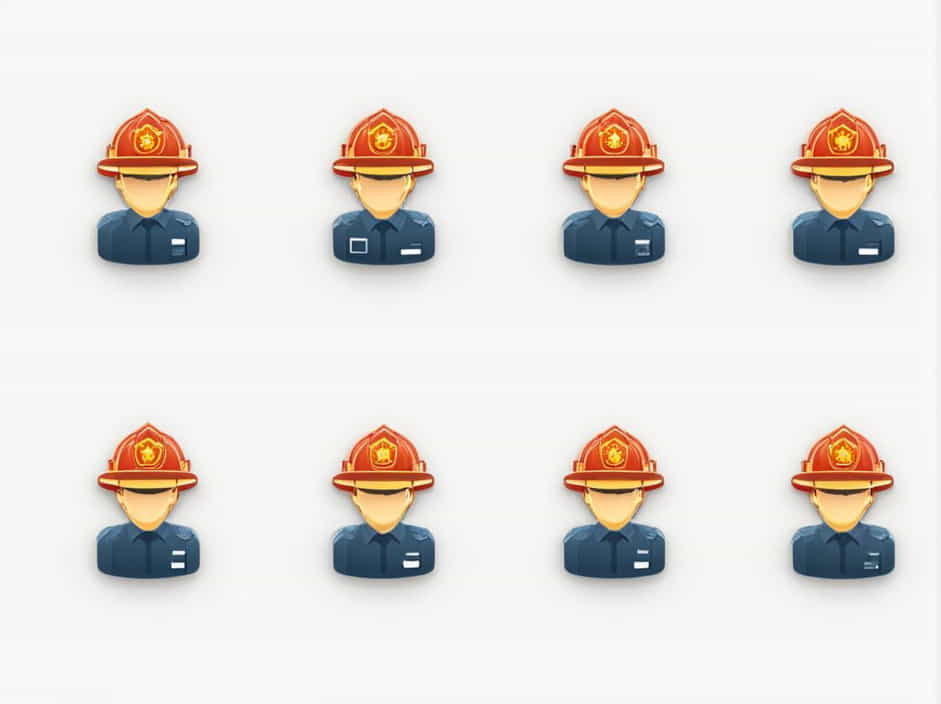Firefighters play a crucial role in protecting lives and property. They respond to emergencies, control fires, and provide medical assistance. But how much do firefighters earn? Their salaries vary based on factors such as location, experience, and department funding.
This topic explores the average salary of firefighters, the factors that affect their earnings, and how salaries compare across different regions.
How Much Do Firefighters Earn on Average?
The salary of a firefighter depends on various factors, but in general:
- Entry-level firefighters earn around $35,000 to $50,000 per year.
- Experienced firefighters with several years of service can make $50,000 to $75,000 annually.
- Fire captains and higher-ranking officers may earn $80,000 or more per year.
Hourly wages for firefighters typically range from $15 to $35, depending on location and level of experience.
Factors That Affect Firefighter Salaries
Several factors influence how much a firefighter earns. Here are the most significant ones:
1. Location
The city or state where a firefighter works significantly impacts salary. Areas with higher living costs tend to offer higher wages.
- Large metropolitan areas (e.g., New York, Los Angeles) pay more due to high demand and increased risk.
- Smaller towns and rural areas generally have lower wages because of lower tax revenues and fewer emergencies.
2. Experience Level
As with most professions, experience plays a significant role in firefighter salaries.
- New recruits start at lower pay but receive raises over time.
- Firefighters with 5-10 years of experience can earn significantly more than those just starting out.
- Veteran firefighters in leadership positions, such as captains or battalion chiefs, earn the highest salaries.
3. Education and Training
Firefighters who obtain additional certifications or degrees in fire science, paramedicine, or hazardous materials handling can qualify for higher-paying positions.
- Basic firefighter training is required for entry-level jobs.
- Advanced certifications (e.g., EMT or paramedic licenses) can increase salary potential.
- Fire officers and investigators often need specialized training, which can lead to higher earnings.
4. Type of Employer
Firefighters work for different types of agencies, which affects their salaries:
- Municipal fire departments (city or county-run) typically offer the best salaries and benefits.
- Federal and state agencies (e.g., forestry firefighters) may pay less but offer excellent job security.
- Private firefighting companies (e.g., oil refinery or industrial fire teams) sometimes offer competitive wages and additional perks.
5. Overtime and Hazard Pay
Firefighters often work long shifts and can earn additional income through:
- Overtime pay for extra hours worked.
- Hazard pay for working in dangerous conditions.
- Holiday pay for working on major holidays.
These factors can significantly increase a firefighter’s overall earnings.
Firefighter Salary by Region
United States
In the U.S., firefighter salaries vary widely by state:
- High-paying states: California, New Jersey, and Washington offer salaries between $60,000 and $90,000 per year.
- Lower-paying states: Southern and Midwestern states like Kentucky, Mississippi, and West Virginia offer salaries in the $35,000 to $50,000 range.
Canada
In Canada, firefighter salaries range from CAD $50,000 to CAD $100,000, with cities like Toronto and Vancouver offering the highest wages.
United Kingdom
Firefighters in the UK earn between £30,000 and £45,000 annually, with higher salaries in London and other major cities.
Australia
Firefighter salaries in Australia range from AUD $50,000 to AUD $90,000, depending on location and experience.
Other Countries
In many developing nations, firefighter salaries are lower, but they often receive additional government support or benefits.
Benefits and Perks of Being a Firefighter
Beyond salary, firefighters receive various benefits, including:
- Pension and retirement plans
- Health and life insurance
- Paid vacation and sick leave
- Job stability and union protection
- Opportunities for career advancement
These benefits make firefighting a financially stable and rewarding career.
Challenges of Firefighter Salaries
Despite the stable income, firefighting has some financial challenges:
- High-risk job – Firefighters put their lives on the line daily.
- Long and unpredictable hours – 24-hour shifts and emergency call-outs can be exhausting.
- Limited salary growth – Without promotions, salary increases can be slow.
How to Increase a Firefighter’s Salary
If you’re looking to boost your earnings as a firefighter, consider the following:
- Obtain additional certifications (e.g., paramedic, hazmat specialist).
- Apply for promotions (e.g., lieutenant, captain, fire chief).
- Work overtime to earn extra income.
- Consider transferring to higher-paying cities or states.
Firefighters earn competitive salaries, but their pay varies based on location, experience, and employer type. While the job comes with challenges, the financial stability, benefits, and sense of purpose make firefighting a rewarding career.
If you’re considering becoming a firefighter, research salaries in your area and explore ways to increase your earning potential. With dedication and experience, firefighters can build a stable and fulfilling career.
